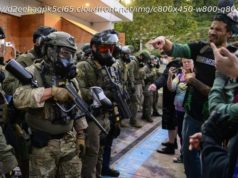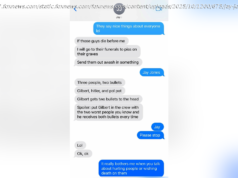Despite Trump’s dismissal of the idea, the list does appear to indicate that Mueller is looking into possible collusion or coordination with Russia during the election campaign
The questions, some 49 in all, were published by The New York Times, which said they were compiled by Trump’s lawyers during negotiations with special counsel Robert Mueller’s investigators over a possible interview with the president himself. The Times said it got the list from someone “outside Mr Trump’s legal team”., though, reported on Tuesday that the list was written by Jay Sekulow, on of Trump’s lawyers.
A person familiar with the matter, who insisted on anonymity to discuss ongoing negotiations, said Trump’s lawyers extrapolated a list of expected questions based on conversations with Mueller’s team. The questions contained in a document posted online by the Times on Monday night reflected questions that defence lawyers anticipated rather than verbatim queries that Mueller’s team provided, the person said.
The Washington Post reported on Tuesday that the list was written by Jay Sekulow, one of Trump’s lawyers.
Despite the suggestion that the list may have been leaked by one of his lawyers, Trump wrote on Twitter that the leak was “so disgraceful”.
“No questions on Collusion,” he continued. That’s the idea that his presidential campaign collaborated with Russians who were trying to help him to the Oval Office. As for obstruction of the investigation after he took office, he scoffed: “It would be very hard to obstruct justice for a crime that never happened!”
With all that mind, what conclusions might be drawn from the list of questions?
It has long been clear that Mueller is interested in whether Trump may have obstructed justice. The questions published by the Times show just how much of a focus it could be.
Although Mueller’s team has indicated to Trump’s lawyers that he is not considered a “target” of the probe, investigators want to interview him about several episodes early in his term.
The bulk of the questions focus on the firing of FBI director James Comey, Trump’s relationship with Attorney General Jeff Sessions, whom he has angrily criticised for recusing himself from the Russia probe, and his former national security adviser, Michael Flynn. According to Comey, Trump encouraged Comey to drop an investigation into Flynn.
The questions attempt to drill down into Trump’s conflicting public answers for his reasons for firing Comey – in one interview he referenced “this Russia thing” – and ask him about the decision more directly.
“Regarding the decision to fire Mr Comey: When was it made? Why? Who played a role?” reads one question.
Despite Trump’s dismissal of the idea, the list does appear to indicate that Mueller is looking into possible collusion or coordination with Russia. Some touch on Russian meddling in the US election and whether the Trump campaign coordinated in any way with the Kremlin.
One question asks what Trump knew about members of his campaign staff, including former campaign chairman Paul Manafort, reaching out to Moscow.
Mueller has brought several charges against Manafort already, including money laundering and bank fraud. None of the charges relates to allegations of Russian election interference and possible coordination with Trump associates, and Manafort has denied having anything to do with any such effort.
Another question asks what discussions Trump may have had regarding “any meeting” with Russian President Vladimir Putin. Still another asks what the president may have known about a possible attempt by his son-in-law, Jared Kushner, to set up a backchannel with Russia before the US inauguration.
At least two questions directly address tweets from the president. One asks: “What was the purpose of your May 12,2017, tweet?” That references a tweet Trump posted after reports that Comey described a private dinner with the president in personal memos. Comey wrote in a memo that Trump repeatedly asked him for loyalty.
“James Comey better hope that there are no ‘tapes’ of our conversations before he starts leaking to the press!” Trump tweeted.
Another question asks about tweets in which Trump suggested Comey should be investigated for the way he handled an investigation into Hillary Clinton’s emails.
The questions also reference television interviews that Trump has given.
It’s still unclear whether Mueller’s investigators will be able to ask Trump any questions – or whether these are the ones they would ask. Trump has said he wants to talk to Mueller. But more recently, he and his team of lawyers, which has undergone changes in recent months, have not said when – or if.
It’s also not clear whether the leak of the questions was meant to somehow influence whether Trump will do the interview.
Comey, in an interview, gave an opinion that steered clear of politics and sounded like the law enforcement official he used to be: “Just as we’ve done in many investigations, you want to develop a complete understanding of the facts and then check them with the subject and see what they say about it.”
In the meantime, Mueller’s investigation continues. On Tuesday, the special counsel’s office and Flynn, a key cooperator, agreed to put off setting his sentencing date for another 60 days, saying the delay was necessary “due to the status” of the investigation.






